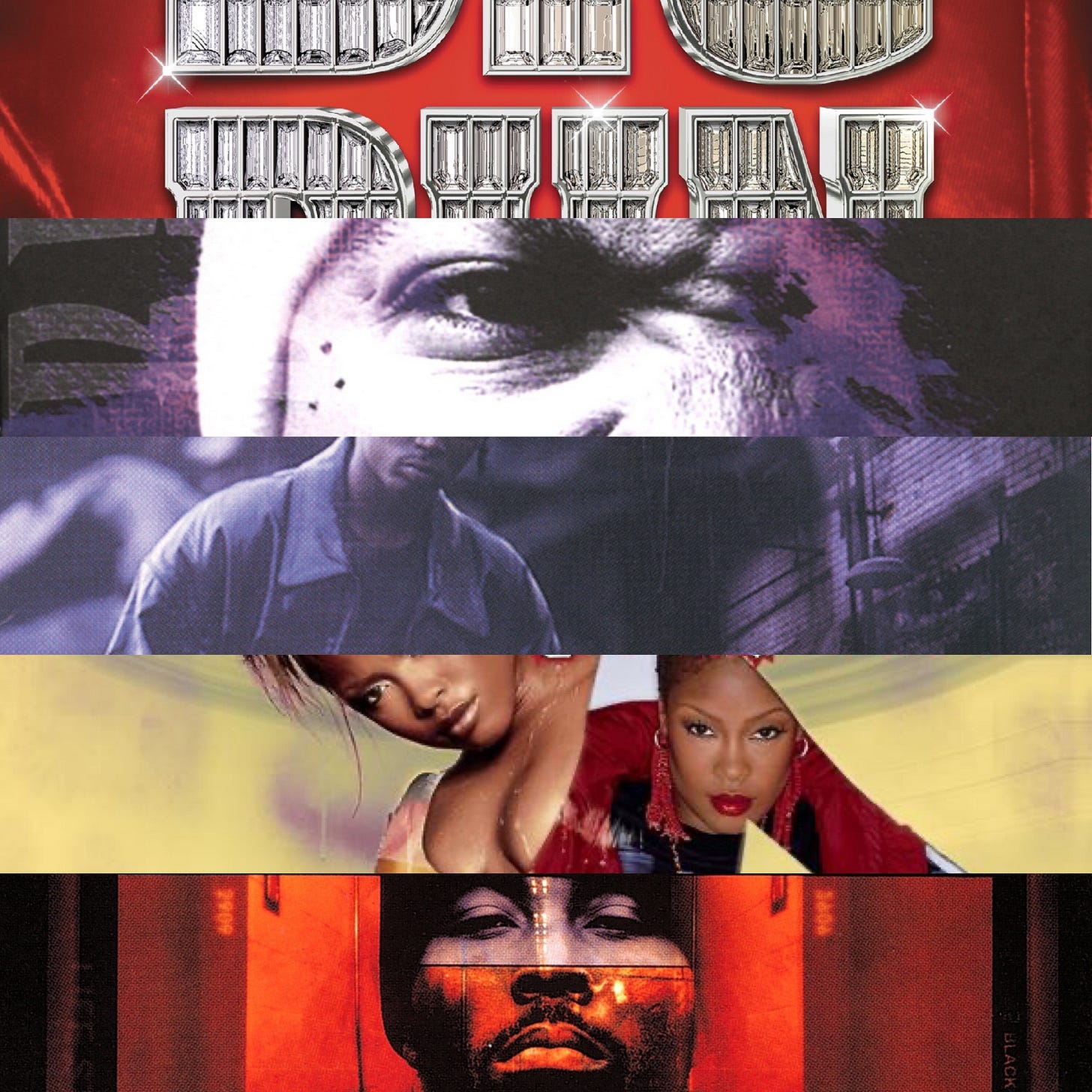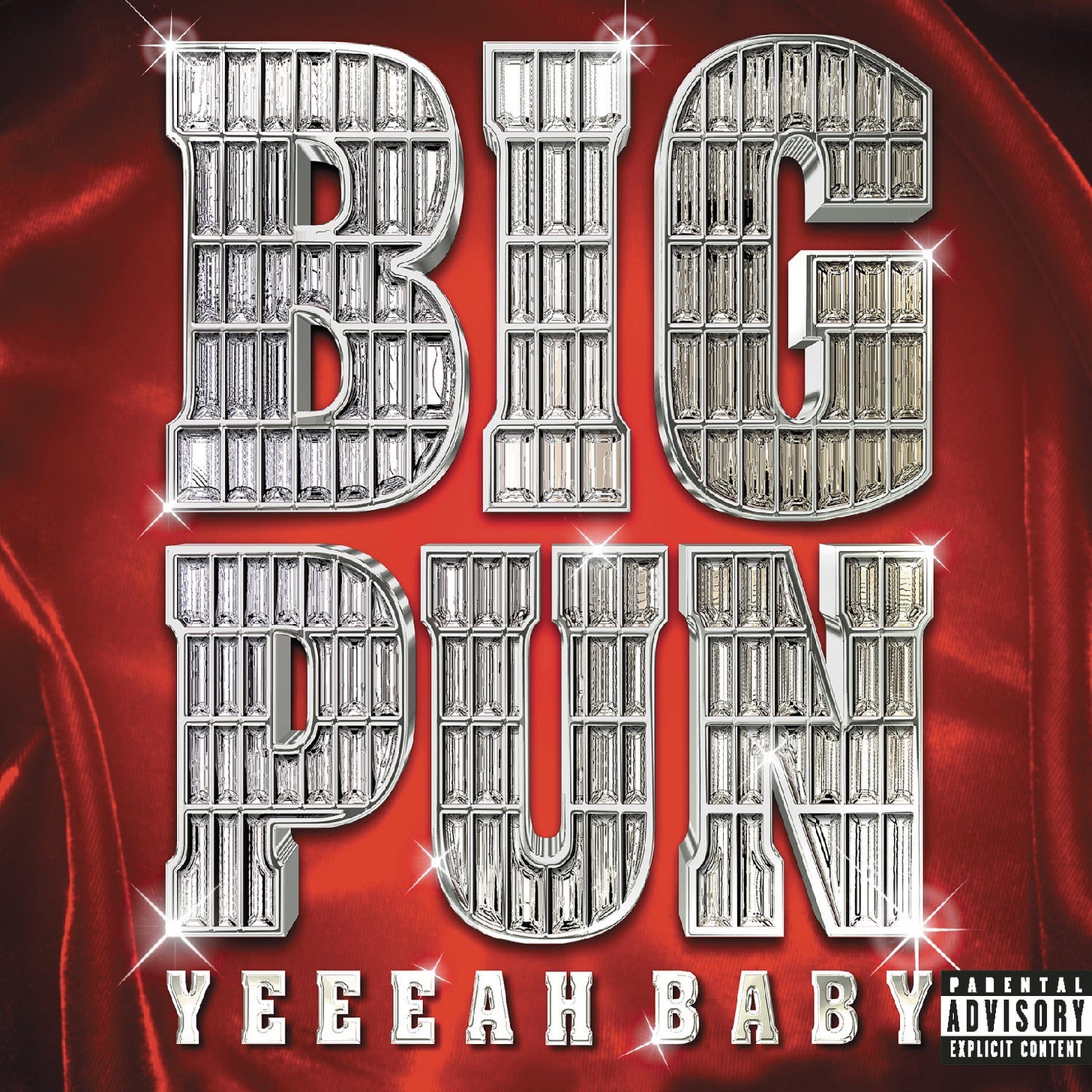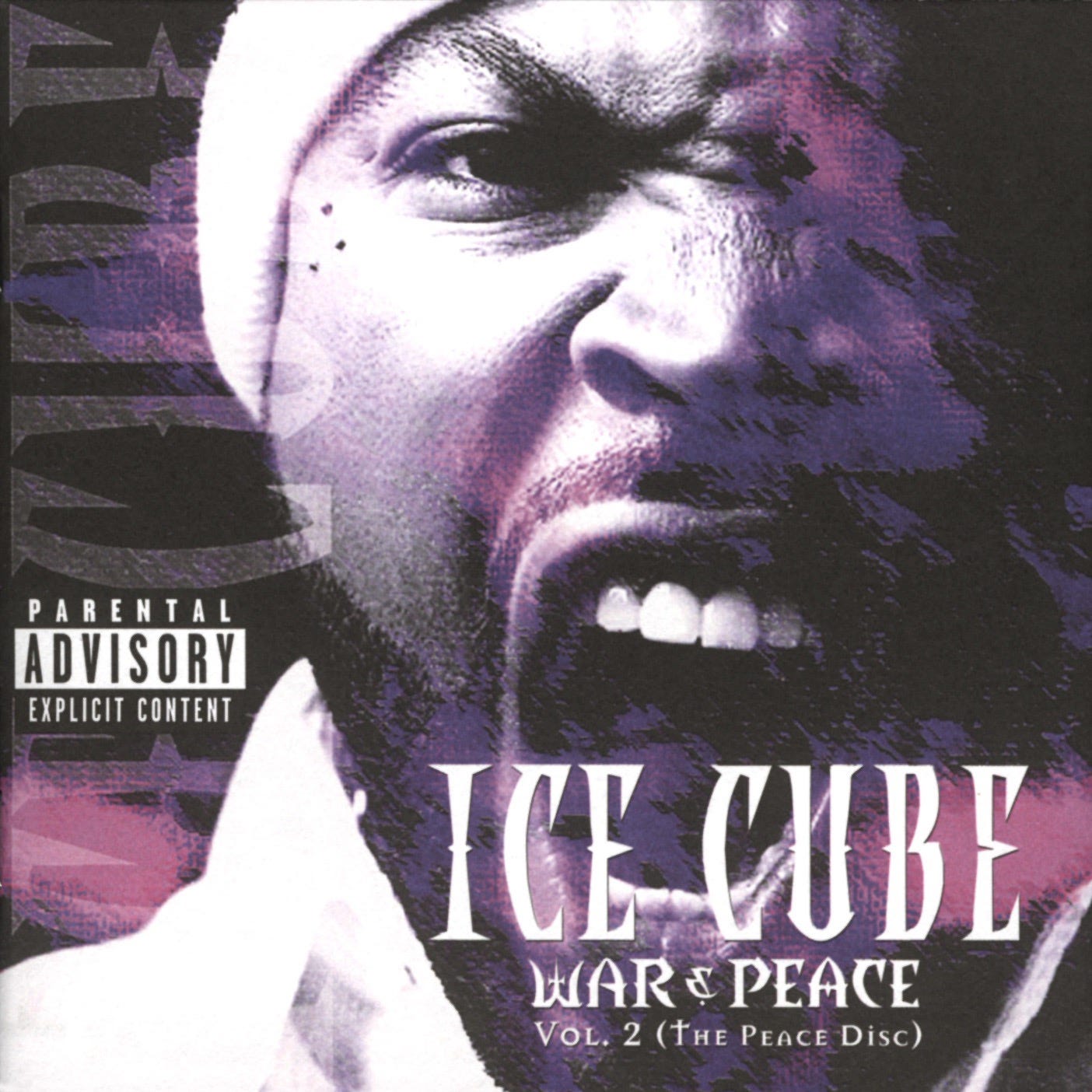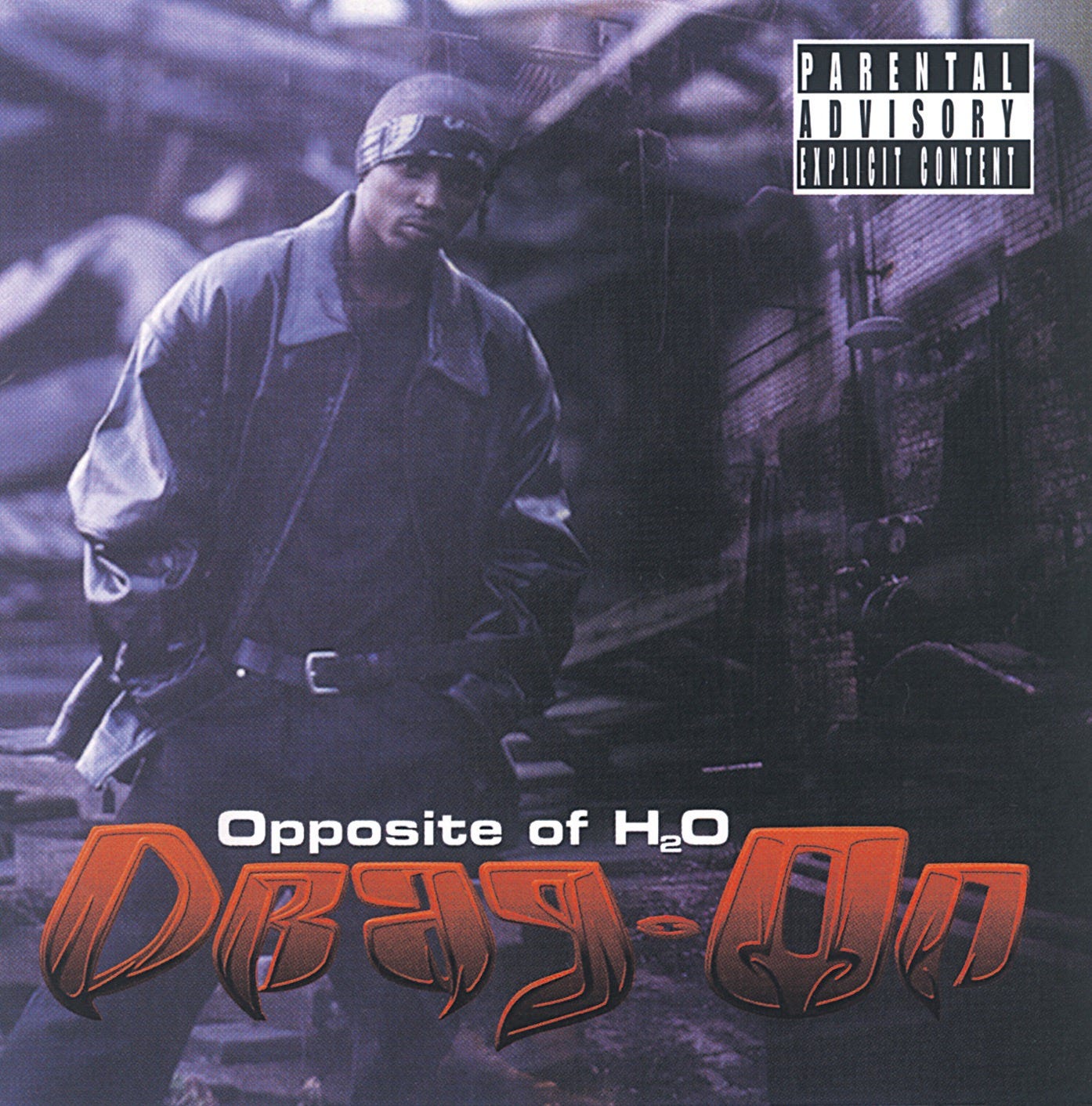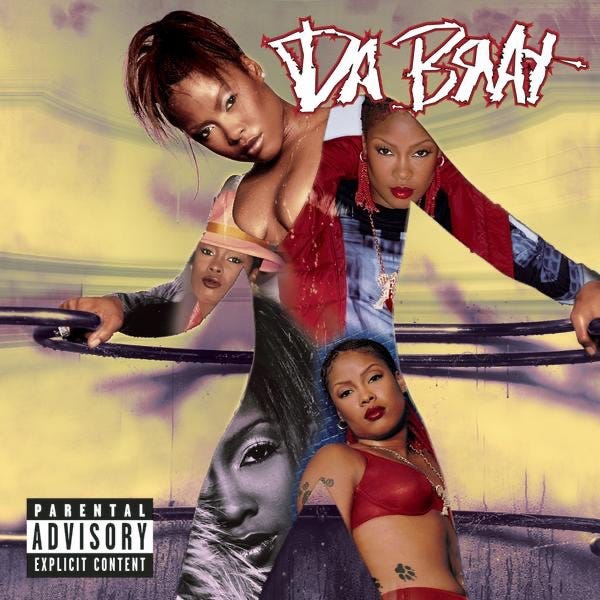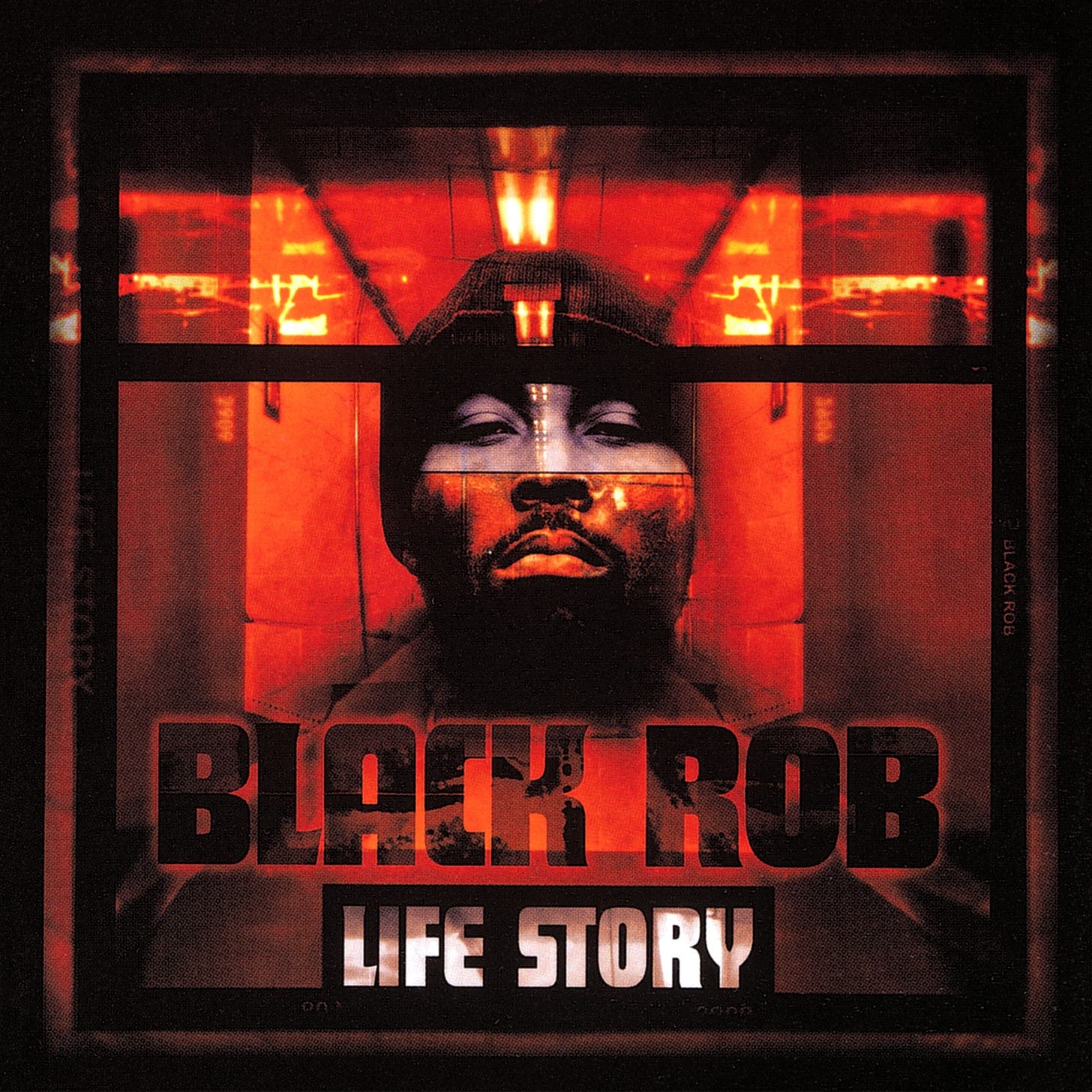Five 2000 Rap Albums That Tell On the Year That Made Them
Each of these records was asked to do too much: fix a label, restart a career, honor the dead, prove a crew was still worth betting on. But you can also hear people refusing to back off.
With Five 2000 Rap Albums, it’s a short series about records that got buried under the official story of the year 2000, but it says more about that moment than the canon does. Twenty‑five years on, the project goes back to albums that sounded “late,” awkward, or out of step at the time and treats them as documents of what it actually felt like to live through that shift.
Big Pun, Yeeeah Baby
This second album from the late Big Pun came out while the shock of the news of his sudden death still hadn’t worn off. It captures the final form of an MC whose loss is hard to accept. With a producer lineup closer to a Terror Squad album overall, it doesn’t have the same range of colors as the first record, and the guest list, which was almost too lavish last time, feels slightly trimmed down. But that just makes this more of a record where Big Pun himself carries everything. Maybe it’s a bit sentimental to call it a note he left behind in the same tone he always had, but it really does feel like one of those albums you just can’t bring yourself to resent.
On “Off Wit His Head,” he runs his trademark almost‑no‑breath flow straight through, locking in with the Terror Squad crew (they’re all sounding strong too) for a really forceful performance. “It’s So Hard” and “My Dick” sit on laid‑back tracks where he drops a gear, and the way his mic work plays off the choruses lands in a comfortable balance. “New York Giants” with M.O.P. is a collab that literally makes the speakers shake, while “100%” uses a sample with a “Watch Out Now”‑style chime to it and a Latin feel over the whole thing, giving it a fun bounce that makes you want to start stepping, even if you don’t actually dance. Then on “Laughing at You,” he throws out the line “Don’t you forget about me now” along with a burst of “hahaha” laughter. That mix of big, rough energy and friendliness in his style matches his look exactly. There’s plenty here to enjoy.
There’s no such thing as a “final” work that truly suits any artist; for every artist, the best one is supposed to be the next record. Even so, as a small kind of consolation, there are albums that make you think, “If it had to end somewhere, this is an ending I can live with.” This one probably belongs in that group. Goodbye, Big Pun. — Brandon O’Sullivan
Ice Cube, War & Peace, Vol. 2 (The Peace Disc)
Ever since seeing that “You Can Do It”—the Next Friday soundtrack cut with the “don’t stop, get it get it, don’t stop, nigga, hit it” chant—was included, I’d been expecting a lot. And yeah, the money and momentum around him are clearly stronger than when the last album came out. At the same time, that tailwind comes from the movie buzz and the N.W.A. reunion aura, so I did have some doubts about how it would play as his album. But it opens strong with “Hello,” which feels like an extra N.W.A. reunion chapter. Over Dre and Mel-Man’s track, built on a heavy, restrained synth-bass mood, Cube just explodes right away. It’s also great hearing MC Ren, who for some reason keeps getting overlooked lately, dropping that thick, lumbering flow he’s so good at.
What may throw listeners is the knot of Bad Boy–related producers, ex-members included. Chucky Thompson actually turns in good work on “You Ain’t Gotta Lie (Ta Kick It),” “Supreme Hustle,” and “Until We Rich.” “Until We Rich,” where Krayzie Bone only appears on the hook, is basically the album’s one proper mellow gem. Puffy’s “Gotta Be Insanity,” on the other hand, is a straight re-sung knockoff of Cameo’s “Keep It Hot”—the kind of trick E-40 already pulled three years back. And Younglord’s “Can You Bounce?” is a clumsy bounce tune that never really comes together.
Even so, as a whole, it’s a pretty solid piece of work. “The Gutter Shit,” with West Coast cameo king Jayo Felony on board, and the tracks handled by One Eye and Bud’da might be only middling as beats, but a surprising number of them still end up as good rap songs. Back in our “Westside debate” feature last issue, Detaka and I (off the page) agreed that Ice Cube is the strongest West Coast rapper because he’s got the voice, the skills, and the sheer push all at once. This album feels like the one that proves it. — Randy
Drag-On, Opposite of H2O
Drag-On is 19, from the Bronx rather than Yonkers. He first made me sit up when he guested on Eve’s solo album, on “Let’s Talk About It.” Ruff Ryders’ popularity obviously has a lot to do with the heavy tracks Swizz Beatz and the in-house producers crank out, but probably even more with how strong the MC roster is. I still don’t get why Jadakiss gets rated so poorly in certain reviews; watching DMX’s live performance on that concert video drives home how good he really is, and the sharp, funny lyrics Eve drops on a few songs are fresh, and it’s no surprise they connect.
Drag-On himself, as he admits in the thanks section, is a DMX follower in terms of influence, but you can also hear that, compared to DMX, whose style is fully formed and in some ways old-school, Drag rides these Ruff Ryders beats with more intricate, playful word choices. There are exceptions, sure, but putting out an album on a major label in the U.S. is no small feat; being on Ruff Ryders clearly isn’t just for show. How many MCs with Drag-On’s skill level are really out there on indie labels?
And of course, you’re not just here for a cappella rhyming—you want strong raps on strong beats. On that front, there are a lot of potential club records: the first single “Spit These Bars”; “Here We Go,” the follow‑up collab with Eve where their interplay is still top‑tier; “Niggas Die 4 Me” and “Get It Right,” both with DMX roaring on the hooks; and the slightly Latin‑flavored “What’s It All About?”. What might be missing is that one killer on the level of the LOX’s “Ryde or Die, Bitch.” — Asa McKenzie
Da Brat, Unrestricted
Her debut blew up back when people were calling Da Brat the ‘female Snoop,’ but that feels like ages ago; the last album collided with the rise of Foxy, Lil’ Kim, and the rest of the sex‑bomb wave and got broken in the process. This third one is her do‑or‑die moment. And, to be blunt, it turned out well. It probably helps that there are now more women MCs who balance ruggedness and femininity, but the first thing to notice is how much more expressive her flow has become. Even the rapid‑fire “machine‑gun rap” she’s been favoring lately (dated term or not) now feels more controlled, like she’s calmly picking her shots before she lets loose.
In full serious mode, Jermaine Dupri sticks to a classic Atlanta formula of percussive, bouncy funk and uses it to pull as much dynamism as possible out of her verses. Bryan‑Michael Cox supports that perfectly, and both Timbaland (on the intro only) and Deric Angelettie contribute in ways that don’t break the overall unity. Some of the slightly odd pairings actually help: the way she tangles with Tyrese’s clean vocal, or Ja Rule’s appearance on “Back Up,” riding a Carl‑So‑Lowe track that really snaps.
The sequence where she basically spits in your face over these aggressive beats—from “Fuck You,” through that same “Back Up,” and on to “Breeve On ’Em”—is full of dusty, dry toughness and plays out in a way that’s as strong as last year’s Sole album Skin Deep. Mystikal, Kelly Price, and other strong‑flavored guests drop in along that run and add just enough seasoning, and labelmates like ex‑Xscape member LaTocha and Trey Lorenz (still kind of shelved there?) show up too. The only real complaint is that there’s no mellow funk cut, no remix in the vein of “Give It 2 You,” but given where Dupri’s sound is right now, that might be asking too much. At least as far as Brat’s sharpness goes, there’s nothing dull about it. — Phil
Black Rob, Life Story
“Whoa!,” with that “whoa” ad‑lib tagged onto the end of every line, is a seriously catchy track and apparently getting hammered on local FM. It’s easy to imagine it being built in the wake of Juvenile’s “Ha,” and in that, you see where Bad Boy sits now, pushed from trendsetters into followers. Even though this Black Rob debut was delayed for close to half a year, you still get Mase—whose voice already feels nostalgic—turning up on “Down ghe Line Joint,” and on “Can I Live,” where the LOX are really in their element, some lines now sound like straight shots at Puff once you hear them after the crew’s departure.
The previously released “I Dare You,” with producer Joe Hooker singing the hook, and songs like “You Don’t Know Me” no longer feel fresh, and even “Lookin’ at Us,” one of the album’s highlights, where Cee‑Lo and Rob are on equal footing, uses a sample Ghostface Killah had just used on his own record. All those little things only reinforce the sense that this album arrived late.
That doesn’t mean Rob is weak as an MC. On the title track, he keeps his timing tight while walking you through his life, and on “Thug Story,” he borrows the “Children’s Story” track to cram in his own long, dramatic narrative — the kind of talent that marks him as a storyteller worth watching. The only really unusual sample choice is “Spanish Fly,” where Jennifer Lopez sings Madonna’s “La Isla Bonita”; otherwise, as a Bad Boy production, the polish here is right up there with Biggie’s Life After Death. Rob clearly benefits from that sound, but it feels like Puff needs Rob more than Rob needs Puff. From lines like “to like dough, light ‘dro, Nitro, might flow, nicer clothes” on down, there are flashes that call Biggie’s flow to mind, but Rob really does have the chops. — Javon Bailey


